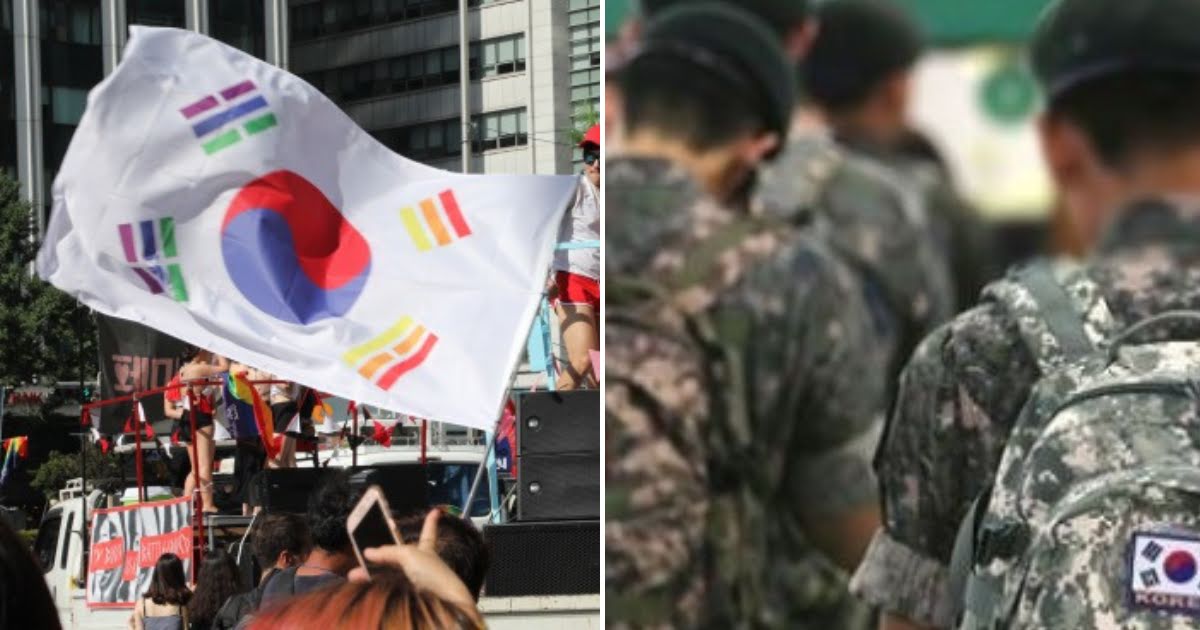The South Korean defense ministry is reportedly pushing for conscripting trans women, i.e., individuals who were assigned male at birth but identify as women.
Image used for illustrative purposes | Lee Young Ho/ AP
The proposal stipulates that Korean transgender women who have not undergone more than six months of hormone therapy will be required to enlist for mandatory military service. On January 19, KST, the Defense Ministry stated that it was working to bring a revised enforcement rule regarding the conscription examination, which mandates men’s eligibility for military service. The revision is currently in the pre-announcement stage, during which the legislative can collect public opinions regarding the bill before the National Assembly launches a review to vote.
A new rule under this draft revision states that transgender women who have not been regularly taking hormone therapy for at least six months would be classified as grade 4, forcing them to join military service as social service personnel under alternative service instead of active-duty soldiers.
According to the current rules in South Korea, individuals who have undergone gender-reaffirming surgery and are legally registered as women are not subjected to the conscription examination. Those who have undergone the surgery but are not registered as women are evaluated as grade 5, which exempts them from military service.
This 2020 image shows men waiting for a physical examination prior to conscription at the Seoul Regional Military Manpower Administration | The Korea Times
Individuals who have not received any gender-affirming surgery but are suffering from gender dysphoria are also given a grade of 5 under current rules as long as they have been receiving hormone therapy regularly for at least six months. However, others who don’t meet this six-month mark are given a grade of 7, which implies they will be subjected to regular follow-up physical examinations.
If the new rule comes into effect in its current form, transgender women who don’t meet the six-month mark will have to join military boot camps to complete three weeks of basic military training, most of which don’t have the proper facilities for women. Additionally, after finishing their alternative service, these women will have to participate in reserve forces training alongside active-duty soldiers.
This 2020 image shows a soldier undergoing training at a military boot camp | Yonhap
According to a Defense Ministry official, this change is being pushed on the belief that unless an individual is facing a certain level of gender dysphoria, they “ought to be able to handle alternative service.”
But LGBTQ+ activists in the country disagree with this move strongly, calling the plan “discriminatory and showing a lack of understanding about transgender people in the sense that it reduces gender identity issues to a question of surgery and therapy.”
Trans people feel differently about how long to take hormone therapy or whether they should take it at all, as well as about the need for [gender-affirming] surgery. That all depends on the severity of their gender dysphoria and the environmental conditions [surrounding that]. The government ought to totally retract this draft revision, which completely disregards how transgender people suffer in a society that takes the gender binary for granted.
— Activist Kim Yong Min, Solidarity for LGBT Human Rights of Korea
In addition to the question of transgender identity, experts have also shown concern for the safety of trans women who might be forced to enlist under this new rule. According to a 2020 report by the National Human Rights Commission of Korea, 84.8% of Korean trans women who served in the military said that they had to endure insulting language about LGBTQ+ people in the military and struggled to use group showers. Nearly half of the respondents (47.4%) also said that they had been subjected to violence, including but not limited to sexual harassment.
Some transgender women who have gone to reserve training have been bullied by men who have recognized them as transgender and posted pictures of them on online communities.
—Lawyer Park Han Hee, Korean Lawyers for Public Interest and Human Rights
The Korean Ministry of Defense took the public opinion on these proposed changes on Monday, January 22. The ministry has also announced its plans to make preparations to ensure trans women who qualify for enlistment can undergo their training in a suitable environment if the revised rule is approved in the National Assembly.
You can read more about the state of transgender people in the South Korean military here.




